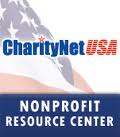Top 10 Considerations when Starting a Nonprofit Organization
 Top 10 Considerations when Starting a Nonprofit Organization
Top 10 Considerations when Starting a Nonprofit Organization
By Thomas R. Reich and Melanie Swift M.N.M
1) Do Your Due Diligence: Initial  Research: Is there a need for the mission you are passionate about in your area? If there is another organization providing the same service, can you partner with them? Will your organization qualify for 501(c)(3) status, or is another section of 501 tax exemption applicable? Read and research everything you can on nonprofit organizations, their administration, and the specific activities you wish to pursue.
Research: Is there a need for the mission you are passionate about in your area? If there is another organization providing the same service, can you partner with them? Will your organization qualify for 501(c)(3) status, or is another section of 501 tax exemption applicable? Read and research everything you can on nonprofit organizations, their administration, and the specific activities you wish to pursue.
2) You Must Have a Plan: Create a Thorough Business Plan: You will quickly discover that a  nonprofit organization is a business. In order to survive, a nonprofit ‘business’ must have as much money coming in as it has services and expenses going out. Have you written a realistic business plan? Does your plan include diversified sources of funding?
nonprofit organization is a business. In order to survive, a nonprofit ‘business’ must have as much money coming in as it has services and expenses going out. Have you written a realistic business plan? Does your plan include diversified sources of funding?
3) Make Sure Your Activities are Serving a Suitable Purpose: Sure, you have a great idea, but does your planned organization qualify as a public charity under 501(c)(3)? Are you better suited as an applicant for 501(c)(4), 501(c)(6), or 501(c)(7) exemption? Research the various sections of federal tax exemption, their requirements, and the benefits associated with each.
4) You Must Undertake Initial Compliance: In the U.S. various registrations are required to be filed by nonprofits, at both the state and federal level. Some people think they don’t have to register and since they are “nonprofit” they won’t get in trouble. Wrong! Registration of nonprofits, paid solicitors, and fundraising counsels protects citizens from becoming victims of fraud and helps to maintain a responsible environment for charitable work.
counsels protects citizens from becoming victims of fraud and helps to maintain a responsible environment for charitable work.
5) You Must Keep Good Records: As a business, the organization will be required to file various reports of business activity. It is important to maintain accurate books and records, and be able to produce basic financial reports as needed. If you are not organized, learn to be before starting a nonprofit organization.
6) You Must Have a Funding Plan: Raising money is a difficult and competitive requirement of most nonprofit organizations. If your experience with raising funds is limited to having previously attended a dinner, golf outing, bake sale or car wash, you need help with fundraising. Without maintaining ongoing funding streams, there is no way to sustain a nonprofit organization.
 7) You Must Seek Formal IRS Recognition: Most nonprofits must complete federal and state filings, both at start-up and on an ongoing basis, and it’s important to learn what each government agency requires of nonprofit organizations. Further, your organization may receive great tax benefits by seeking recognition as an organization exempt under 501(c), and complying with reporting is an obligation you must fulfill if you are to retain these invaluable benefits.
7) You Must Seek Formal IRS Recognition: Most nonprofits must complete federal and state filings, both at start-up and on an ongoing basis, and it’s important to learn what each government agency requires of nonprofit organizations. Further, your organization may receive great tax benefits by seeking recognition as an organization exempt under 501(c), and complying with reporting is an obligation you must fulfill if you are to retain these invaluable benefits.
8) Do Not Misjudge the Time Required to Run a Great Nonprofit: Operating a nonprofit organization is not a hobby. If you think that you can run a nonprofit organization part-time, you need to have others helping you or you will fail. When you consider that it is a business and is subject to filing and reporting requirements in addition to service delivery, you quickly realize it requires a full-time commitment.
9) Building an Effective Board is Essential: Competent leadership is critical, and an effective board is one that is composed of talented, dedicated, and connected people who have been selected to ensure the public’s trust. Your board should add integrity to your work, offer access to funding, provide some of the expertise you need, and be dedicated to your mission.
is one that is composed of talented, dedicated, and connected people who have been selected to ensure the public’s trust. Your board should add integrity to your work, offer access to funding, provide some of the expertise you need, and be dedicated to your mission.
10) Make Sure to Have the Very Best Talent Involved: At a minimum, you will need very professional help that fully understands all aspects of the nonprofit industry. Some of the key specialized professionals do not need to be on staff, and can be retained on a contract basis, as needed. The same is true for fundraising efforts; you need access to professionals that fully understand nonprofit fundraising. For key areas of nonprofit organization reporting and management, you are best served by hiring professionals who fully understand the legalities of reporting the collections and dispersal of funds. Having systems set up by professionals in the nonprofit world will save you money, time, and possible penalties along the way!
Luckily for you there is CharityNet USA, an entire organization dedicated to solving your nonprofit back  office needs. From initial incorporation and preparation of the application for 501 tax exemption, to strategic planning, grant proposal development, fundraising planning, and 990 tax filings, CharityNet USA can handle it quickly and efficiently. After more than 13,000 clients, CharityNet USA’s systems are fully tested and proven, and our pricing is far below the competition.
office needs. From initial incorporation and preparation of the application for 501 tax exemption, to strategic planning, grant proposal development, fundraising planning, and 990 tax filings, CharityNet USA can handle it quickly and efficiently. After more than 13,000 clients, CharityNet USA’s systems are fully tested and proven, and our pricing is far below the competition.
CharityNet USA is offering a free nonprofit review and a free session with a nonprofit business consultant just to show you what can be accomplished when we work together for the greater good!
Join us for a FREE nonprofit webinar Wednesday July 11, 2012 from 2PM-3PM EST “The Basics of Starting a Nonprofit Organization” with Nonprofit Industry Expert Howard Walker.